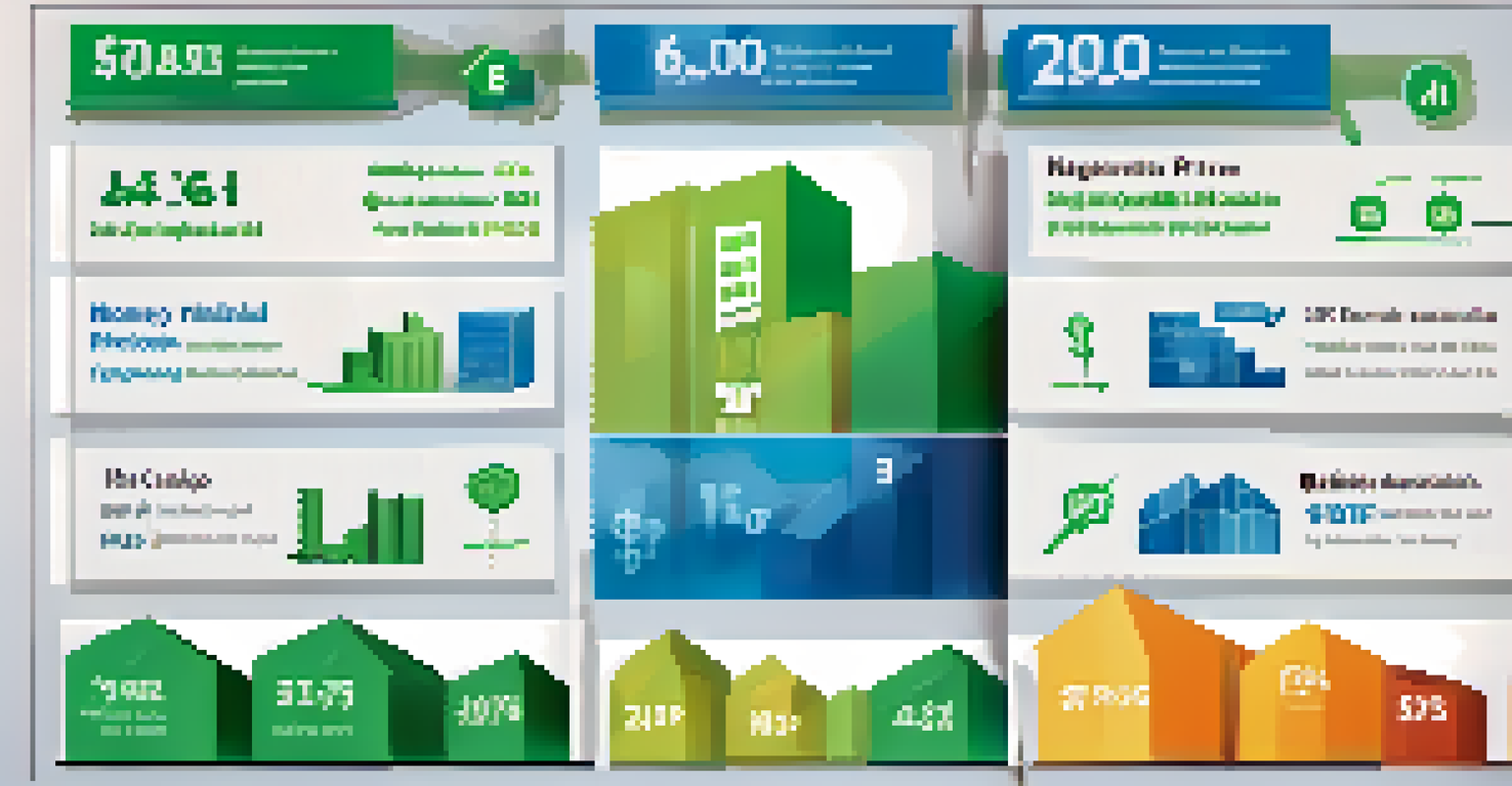Understanding the Impact of Inflation on San Jose Housing

What is Inflation and Why Does It Matter?
Inflation refers to the general increase in prices and the decrease in purchasing power of money. In simpler terms, when inflation rises, each dollar you have buys less than it did before. This phenomenon is crucial to understand, especially for potential homebuyers in San Jose, where housing costs are already high.
Inflation is not just a number; it affects every aspect of our daily lives, from groceries to housing.
As prices increase, everyday expenses like groceries, gas, and rent can put a strain on household budgets. This economic pressure can leave less money available for savings or big purchases, like a home. It's important to grasp how inflation intertwines with the housing market, impacting what buyers can afford.
In San Jose, where the tech industry drives demand for housing, inflation can exacerbate the already competitive market. Higher costs can lead to bidding wars, making it even more challenging for buyers to secure a home.
Current Inflation Trends Affecting San Jose
In recent years, inflation rates have seen significant fluctuations due to various factors, including the pandemic and global supply chain issues. These trends have a direct impact on housing prices in San Jose, which has been one of the fastest-growing real estate markets in the nation. As inflation rises, so do the costs of construction materials and labor, further driving up home prices.

When inflation is high, interest rates typically rise as well, making mortgages more expensive. This can deter potential homebuyers, pushing them to either wait or settle for less expensive properties. In a city like San Jose, where homes are already pricey, this can mean the difference between buying a dream home or continuing to rent.
Inflation Impacts Housing Affordability
As inflation rises, the purchasing power of money decreases, making it harder for potential homebuyers in San Jose to afford homes.
Additionally, inflation can lead to increased property taxes, which homeowners must account for in their budgets. These rising costs can create a ripple effect, impacting everything from housing supply to rental rates.
How Inflation Influences Housing Prices
When inflation occurs, the cost of housing typically rises in tandem, making it more difficult for first-time homebuyers to enter the market. For instance, if inflation is at 5%, a house priced at $800,000 could cost $840,000 just a year later. This rapid increase can deter potential buyers and create a sense of urgency among those who might otherwise wait.
The biggest risk of inflation is not just rising prices, but the impact it has on the dreams of homeownership for so many families.
Moreover, inflation can lead to a decrease in housing inventory. Homeowners who might consider selling their properties may choose to hold onto them, hoping to benefit from even higher prices in the future. This stagnation in the market can further limit options for buyers looking for affordable housing in San Jose.
In this context, understanding how inflation affects housing prices can help potential buyers make informed decisions. It’s essential to keep an eye on economic indicators and trends to navigate this complex landscape.
Renters in a High-Inflation Environment
For renters in San Jose, inflation presents its own set of challenges. As landlords face rising costs, they often pass these expenses onto tenants in the form of increased rent. This can make it difficult for renters to find affordable housing, especially in a city where rental prices are already steep.
Furthermore, as inflation pushes homeownership further out of reach for many, the demand for rental properties can increase. This heightened demand can lead to even higher rents, creating a challenging cycle for those looking to secure a place to live.
Rising Costs Affect Renters Too
Inflation leads to increased rents as landlords pass on their rising costs, creating affordability challenges for renters in San Jose.
Renters need to be proactive in understanding their rights and exploring options for rent control or assistance programs that may be available. It’s crucial to stay informed about local market trends to avoid being caught off guard by sudden rent hikes.
Long-Term Effects of Inflation on Homeownership
The long-term effects of inflation on homeownership in San Jose can be profound. With rising prices, many potential homeowners may find themselves delaying their purchase, which can lead to a generation of renters. This shift can change the demographic makeup of neighborhoods, impacting community dynamics and economic stability.
Additionally, as inflation continues, the gap between wealthier buyers and those with lower incomes can widen. Those who can afford to pay inflated prices for homes may thrive, while others are left behind, unable to secure stable housing. This divide can lead to increased social tensions and challenges in urban planning.
Homeownership is often seen as a cornerstone of the American Dream, but inflation threatens to reshape this narrative. Understanding these long-term effects is crucial for policymakers and community leaders as they seek to create equitable housing solutions.
Strategies for Buyers in an Inflationary Market
Navigating the housing market during periods of inflation can be daunting, but there are strategies that potential buyers can employ. One effective approach is to get pre-approved for a mortgage, which not only gives you a clear idea of your budget but also positions you as a serious buyer in a competitive market. Knowing how much you can afford can help you act quickly when you find the right property.
Another strategy is to consider different neighborhoods. While San Jose has many desirable areas, exploring up-and-coming neighborhoods might yield more affordable options. Often, these areas have the potential for growth, making them a smart investment for the future.
Government Policies Can Help
Effective government policies, such as affordable housing initiatives and rent control, can mitigate the negative effects of inflation on the housing market.
Lastly, staying informed about market trends and economic forecasts can empower buyers to make timely decisions. By understanding when to buy and how inflation affects their purchasing power, they can maximize their chances of securing a home.
The Role of Government Policy in Housing and Inflation
Government policy plays a critical role in shaping the housing market, especially during times of inflation. Policies that promote affordable housing development can help counteract the rising prices caused by inflation. For instance, initiatives that provide incentives for builders to create lower-cost housing can help increase supply and stabilize prices.
Additionally, rent control measures can serve as a buffer for renters against inflation-related price hikes. These regulations can help protect tenants from sudden increases in rent, providing them with more stability in an uncertain economic environment.

It's essential for citizens to engage with local government and advocate for policies that support housing affordability. By staying involved and informed, communities can work towards solutions that address the challenges posed by inflation in the housing market.